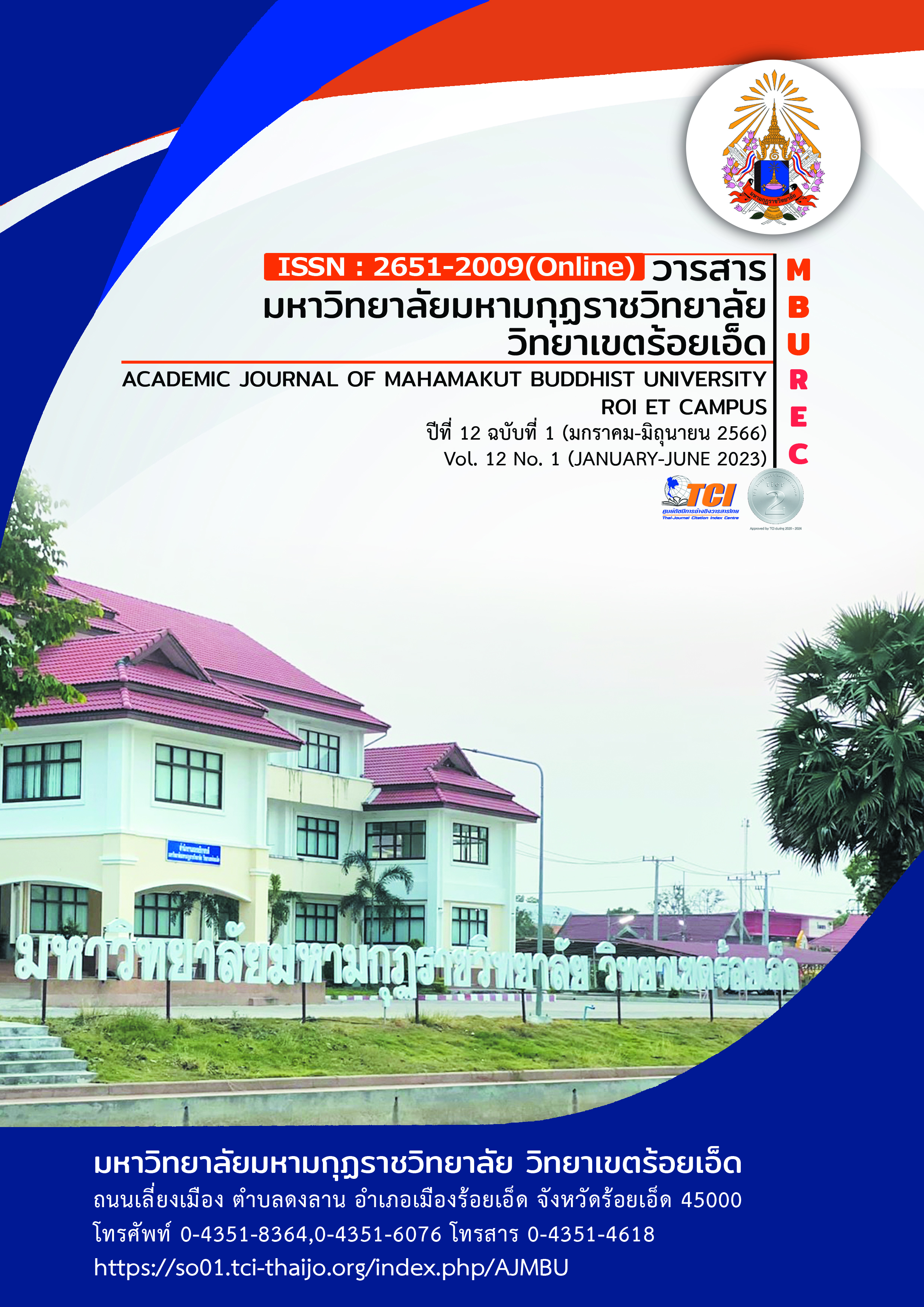ATTITUDE TOWARD CHEMISTRY PROJECT PRACTICE BETWEEN USING OPEN INQUIRY PROJECT APPROACH (OIPA) AND USING GUILD INQUIRY PROJECT APPROACH (GIPA)
Main Article Content
Abstract
The objectives of this research was to compare the attitude toward chemistry project practice between Open Inquiry Project Approach (OIPA) and Guild Inquiry Project Approach : GIPA)on chemistry subject of engineering undergraduates North Eastern University 1st semester, 2022 academic year. The target groups used in the research were 60 undergraduates’ students to device 2 groups. They were divided into two groups of 30 each. The Open Inquiry Project Approach was the experimental group and The Guild Inquiry Project Approach was the control group. The instrument used was the Attitude toward Project Chemistry Test. There were 2 parts such as; part 1 was Likert Scale, and part 2 was multiple choices the statistics used in the data analysis were frequency, percentage nd compare statistic were Mann–Whitney Test and 2. The research found that: 1. The comparison of the result on attitude toward chemistry project practice between the experimental group and the control group using the Likert scale was found to be significantly different at the 0.05 level with Mann–Whitney U Value(t)=58 and Mann–Whitney U Prob. (p)=0.00 for the experimental group and the control group=4.33 and 3.13, respectively. 2. The comparison of the results of attitudes towards chemical project practice between the experimental group and the control group using a multiple choice test was found that there were different proportions with statistical significance at the 0.05 Including; the time spent(
2=6.79, p = 0.01), the difficulty of the operation(
2=4.44, p = 0.03), and the reasons for the changes in the inquiry project, it was found that the two factors, namely, project participants(
2= 11.92, p = 0.00), and teachers(
2= 13.87, p = 0.00).
Article Details

This work is licensed under a Creative Commons Attribution-NonCommercial-NoDerivatives 4.0 International License.
References
ทิศนา แขมมณี. (2553). ศาสตร์การสอน. พิมพ์ครั้งที่ 13. กรุงเทพมหานคร : จุฬาลงกรณ์มหาวิทยาลัย.
ธวัช ทะเพชร และคณะ. (2565). ปัจจัยที่มีผลต่อความวิตกกังวลในการพูดภาษาอังกฤษของนักศึกษาสาขาวิชาภาษาอังกฤษเพื่อการสื่อสาร มหาวิทยาลัยภาคตะวันออกเฉียงเหนือจังหวัดขอนแก่น. วารสารพุทธปรัชญาวิวัฒน์. 6(2). 341-352.
ธีรพัฒน์ วงศ์คุ้มสิน และเฉลิมขวัญ สิงห์วี. (2563). การจัดการเรียนรู้แบบใช้โครงงานเป็นฐานเพื่อพัฒนา การเรียนรู้ด้วยการนำตนเอง. วารสารสังคมศาสตร์และมนุษยศาสตร์. 46(1). 218–253.
วิจารณ์ พานิช. (2555). วิถีการสร้างการเรียนรู้เพื่อศิษย์ในศตวรรษที่ 21. กรุงเทพมหานคร : มูลนิธิสดศรีสฤษดิ์วงศ์.
สินีนาฎ นาสีแสน, สุมาลี ศรีพุทธรินทร์ และวัชรี แซงบุญเรือง. (2565). สภาพความต้องการจำเป็นและแนวทางพัฒนาการบริหารงานวิชาการของโรงเรียนยุควิถีใหม่สังกัดสำนักงานเขตพื้นที่การศึกษามัธยมศึกษาสกลนคร. วารสารวิชาการและวิจัย มหาวิทยาลัยภาคตะวันออกเฉียงเหนือ. 12(4). 1-15.
สุทธิวรรณ ตันติรจนาวงศ์. (2560). ทิศทางการจัดการศึกษาในศตวรรษที่ 21. Veridian E-Journal, Silpakorn University ฉบับภาษาไทย สาขามนุษยศาสตร์ สังคมศาสตร์ และศิลปะ. 10(2). 2483-2485.
สุพรรษา น้อยนคร. (2563). การจัดการเรียนรู้แบบโครงงานบูรณาการกับโซเชียลมีเดียเพื่อเสริมสร้างทักษะด้านสารสนเทศและเทคโนโลยีของผู้เรียนในศตวรรษที่ 21. สักทอง : วารสารมนุษยศาสตร์และสังคมศาสตร์ (สทมส.). 26(3). 25-39.
Allport, G W. (2008). “Attitudes” In Attitudes Measurement. London : Sage.
Arslan, A. (2014). Transition between Open and Guided Inquiry Instruction. Procedia – Social and Behavioral Sciences. 141( 2014). 407–412.
Bennett, Judith. (2003). Teaching and Learning Science. London : Continuum.
Guisti, B.M. (2008). Comparison of guided and open inquiry instruction in high school physics classroom. Retrieved 1 September 2022. From http://scholar sarchive.byu.edu/cgi/viewcontent.cgi?article=2484&context=etd
Maksum, H. & Purwanto, W. (2022). The development of electronic teaching module for implementation of project-based learning during the pandemic. International Journal of Education in Mathematics, Science, and Technology (IJEMST). 10(2). 293-307.
Osborne, Jonathan, Simon, Shirley and Collins, Sue. (2003). Attitudes towards Science: A Review of the Literature and Its Implications. International Journal of Science Education. 25(9). 1049-1079.
Wheeler, L and Bell, R. (2012). Open -Ended Inquiry : Practice Way of Implementing in the Chemistry Classroom. Science Teacher. 3(2012). 31-39.
Zion, M and Sadeh, I. (2010). Dynamic Open Inquiry Performances of High-School Biology Students. Eurasia Journal of Mathematics, Science & Technology Education. 6(3). 199-214.


